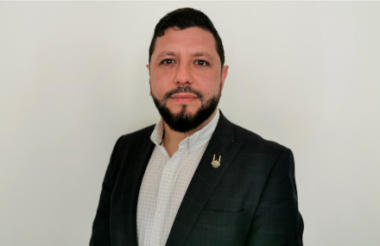Charities will need to keep engaging with donors during the recession, even if those donors are not able to give, Islamic Relief’s head of fundraising has said.
Speaking during an Instagram Live interview with Fundraising Magazine as part of Civil Society Media's Faith Week, Zia Salik, head of fundraising at Islamic Relief, said he is expecting the economic consequences of the pandemic to be fully felt in fundraising over the next six to 12 months.
He said the end of the furlough scheme, the ongoing recession, and continuing social distancing measures will be felt by donors. His team is responding by doing more stewardship as well as fundraising.
‘We can’t constantly keep asking’
Salik said: “We are bracing ourselves for the impact of all these things combined upon our donor base, as I guess are most people in the sector.
“We're supplementing our fundraising with a lot more stewardship of our donors, supporters and volunteers.
“Over the next six months at least, we really need to keep our donors engaged. But we can't constantly keep asking, especially if the situation that communities themselves are in means it is going to be quite difficult for them to give anyway.”
Charities should not ‘disappear from the space’
He said that charities need to make sure they do not lose contact with their supporters during the crisis, even if they can’t give.
“As long as our messaging is clear, we may see a dip in people's ability to give as opposed to their willingness to give.
“Our job is to keep them engaged, to keep them informed, and to keep giving them the opportunities to give, so that when they are able to, then they will give.
“If we disappear from the space, if we take a step back and we're no longer there, when people are back into a position of being able to give, we're not going to be at the forefront of their minds.”
‘Digital is here to stay’
Salik also talked about how Islamic Relief managed to raise a record sum during the month of Ramadan, despite lockdown, by pivoting activities to digital.
He said that big and small charities are all increasing their digital capabilities as a result of the pandemic and that this will be a permanent change in the way the sector works.
Even charities that normally rely heavily on face-to-face collections, such as Christian charities, are now moving online.
“Everybody has had to educate themselves very quickly on the digital space and digital tools. I think digital is here to stay. I think it was already here. But it's definitely not going backwards,” he said.
Rethinking the business model
Charities need to “think carefully” about their future plans because it will take time before things go back to normal, Salik said.
“We need to look at our financial resilience plans to see if the way we're currently operating, the business model we currently have, is going to be fit for purpose if fundraising is impacted – because if we don't have the income coming in to sustain operations, we can't just carry on going as if nothing's changed.
“The world has changed, and we've got to adapt to that.”
Demonstrating impact
Finally, he argued that one thing Muslim charities as a sector could improve when it comes to fundraising is demonstrating impact.
He said their donor base is “incredibly generous” when there is a crisis, and charities “tend to move from one appeal to the next”.
This is because reporting back can be “a very long and manual process”, and “we just don't have the infrastructure in place to be able to do it effectively”.
Salik said: “We've got to build our systems and processes in a way that a lot of these things can be automated and seamless.
“I think the whole donor journey really needs to be reviewed.”












